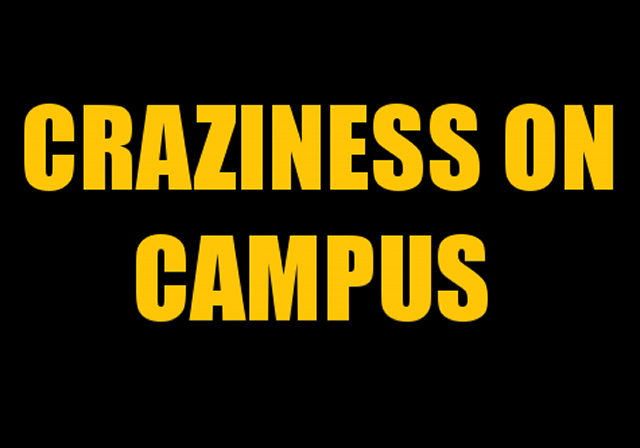Universities in California Make Millions on Fees of Rejected Applications
“Thirteen California universities were counted among the top 50 for total revenue from applications”

Some people would look at this and say it’s a scam. It certainly doesn’t seem fair, anyway.
The Sacramento Bee reports:
California universities make millions on applications they reject
UCLA made more than $6.7 million last year from admission applications, with more than 80 percent of it coming from applications that were ultimately rejected.
UCLA topped a list of 500 higher education institutions, public and private, surveyed by the National Center for Education Statistics and curated by LendEDU, a “marketplace for private student loans, student loan refinancing, credit cards and personal loans,” according to its website.
But UCLA wasn’t alone among California universities to receive considerable revenue from applications. Thirteen California universities were counted among the top 50 for total revenue from applications, with the first six slots going to UCLA, UC San Diego, UC Berkeley, UC Irvine and UC Santa Barbara.
To read LendEDU’s study, see here.
 DONATE
DONATE
Donations tax deductible
to the full extent allowed by law.








Comments
Of course it’s a scam. UCLA actually charges a $105 application fee, which is less than many other colleges. Most of the applicants are instantly rejected by a computer based on GPAs, test scores, race, sex, and other data. That is where the schools make substantial profits. There is no reason these instant rejections should be charged an application fee.
The likely admits go on to actual human evaluators, and may be invited for interviews. This process requires human resources, and might justify an application fee for the likely admits. But one could argue that the admissions process is just as important for the school as it is for the prospective students, and the school should cover its expenses as a normal cost of doing business.
The highest application fee we’ve encountered in college apps this year is $75. That’s in addition to $12 to have test scores sent from College Board and $16 to have the financial “profile” sent from College Board, all per school. Not all schools need the profile, but almost all need the test scores. We didn’t do ACT but that would have been additional cost.
And of course all the fees to take various tests last year from College Board.
Does this study look at the costs to run the admissions office? That would be an interesting comparison.
So are there grounds for a class action suit if it is plausible that the school is simply using the process as a means to generate revenue? If they are using a computer to automatically reject unsuitable applicants, then it seems as those these criteria should be published.* There are two possible reasons that they aren’t. One is revenue, and the other, likely more important, is implied exclusivity, in that they want to bolster the total number of applicants in order to make it appear as if the school is more selective with the incoming class. Saying that a school accepts one out of six that apply is better than one out of two. In addition, it could be like health care, where the costs are spread out over those who don’t need it to pay for those who do. They might not be making money. It might cost $25 for each easily rejected applicant, and $500 for each accepted applicant (I am making up these numbers only to illustrate a point). So 6 applicants generate $630 in payments, but it costs the school $625 to figure out who the one person that they will admit.
* of course the minimums are somewhat fluid and the cutoff points would need to be determined based on historical data. But I am sure that if say they are taking 1 out of 6, then they could compute the value of the 50% percentile for the applicant pool, and probably all of those admitted (excepting athletes, of course) would be be above the 50% point in all criteria. Regardless, they should be able to flat out say that if one doesn’t meet absolute minimums in certain areas, then their application won’t be considered and they shouldn’t apply. But then they would be opening up the pandora’s box of likely affirmative action determinations which they absolutely would never want to be made public.
I don’t think this is net revenue. UCLA is far from blameless but the cost of processing an app is between 0 and the actual charge (someone else said $105).
It would be nice if they were required to charge each person actual cost of app processing…but that will never happen because they have to subsidize rather than “penalize” those who can’t pay or those with whatever merits are deemed worthy of further examination.
Last thing I’ll add: No one is forcing anyone to pay the app fee and apply to go to UCLA. In an ideal free market world, market forces would come into play (incentivized discounts or waived fees for high achievers to recruit quality apps over quantity, but of course a gamed selectivity ranking is more important in academic fantasy land)